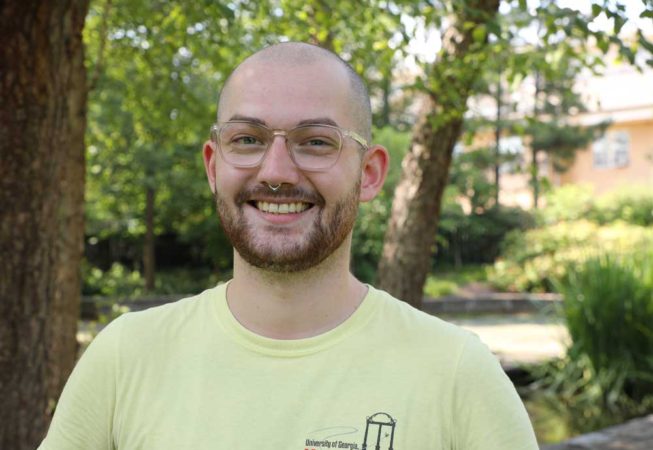Crowding and Caravans: Is Industrial Beekeeping Bad for Bees?
Understanding the complexity of how nomadic, densely packed beekeeping might, or might not, make our bees sick – not always in the ways we might expect. Do we need to worry about how we crowd our bees together, and does a ‘natural’ life for bees mean a healthier life? Using tools developed for epidemiology and infectious disease biology alongside long-running experiments from the last half-decade, I’ll detail surprising new findings showing that there are parts of modern beekeeping that we don’t have to worry about, and show that the story of which bees are healthier is not always as simple as we might be led to believe, with beekeepers better at keeping bees healthy than we sometimes get credit for.
Note: Lewis Bartlett will be joining us via Zoom this year.
Lewis Bartlett is a post-doctoral fellow at the University of Georgia Honey Bee Program and Odum School of Ecology working at the intersection of infectious disease biology and beekeeping. His research focuses on how infectious diseases and parasites cause so much harm to honey bees and how we can help honey bees defend themselves. Lewis began keeping bees ten years ago as part of scientific research and as a hobbyist in the UK before moving to America in 2016. He has worked with scientists across the UK, Europe, and US on topics including the risk to beekeeping from mosquito control, how sugar feed quality impacts colony immunity, the effects of crowding or moving honey bees on their viral infections, and on testing novel control techniques for pests like Varroa and Small Hive Beetles. His research goals are to inform solutions to managing honey bee diseases and pests that are effective and economically viable, always with an ear toward experiences and insights from beekeepers.

